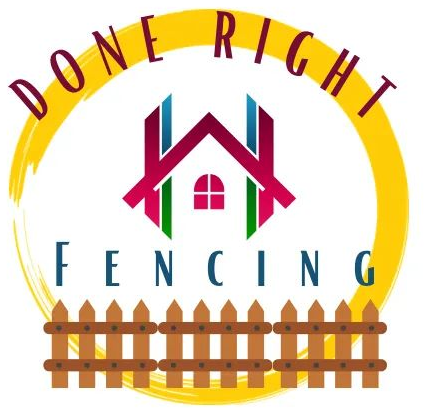Wood has timeless appeal, and natural beauty often makes it the first choice for those looking to define their property boundaries. But, like any other material, it has benefits and cons. Let’s look at the pros and cons of putting up a wooden fence around your property so you can make a well-informed choice.
Pros of Wooden Fences
- Aesthetic Appeal
Wood’s natural, rustic charm is hard to beat. It offers a warm and welcoming look; over time, it can develop a patina many homeowners love. It’s highly customizable, allowing for various designs, from traditional picket fences to more intricate latticework.
- Flexibility in Design
Wood’s adaptability is one of its many advantages. Staining, painting, or leaving it in its original state are all viable options. Whether you want a vibrant color to stand out or a stain that enhances its natural grains, the choice is yours.
- Environmentally Friendly
Wood is biodegradable and sourced from a renewable resource. Wood from sustainably managed forests can be purchased if environmental impact is a concern.
- Cost-Effective
Compared to materials like wrought iron or vinyl, wood often comes out as a more budget-friendly option, at least initially.
Cons of Wooden Fences
Maintenance
The most significant drawback of wooden fences is the maintenance they require. Regular staining or painting is necessary to retain their beauty and prevent decay. They must also be cleaned to avoid mold, mildew, and pest infestations.
Durability Concerns
While some types of wood, like cedar, are naturally resistant to pests and rot, wood, in general, can be susceptible to termites and other wood-boring insects. If wood isn’t properly cared for over time, it might distort, rot, or damage.
Weather Sensitivity
Wetness causes rotting, while direct sunlight causes fading and cracking. Furthermore, wood may expand and contract in regions with dramatic temperature fluctuations, leading to structural issues.
Shorter Lifespan
Even with diligent care, wooden fences typically have a shorter lifespan than metal or vinyl fences. Over time, they might require repairs or replacements more frequently.
Conclusion
Wooden fences are flexible in design and can be tailored to fit a homeowner’s specific aesthetic and functional needs. However, they do come with maintenance challenges and potential longevity concerns.

